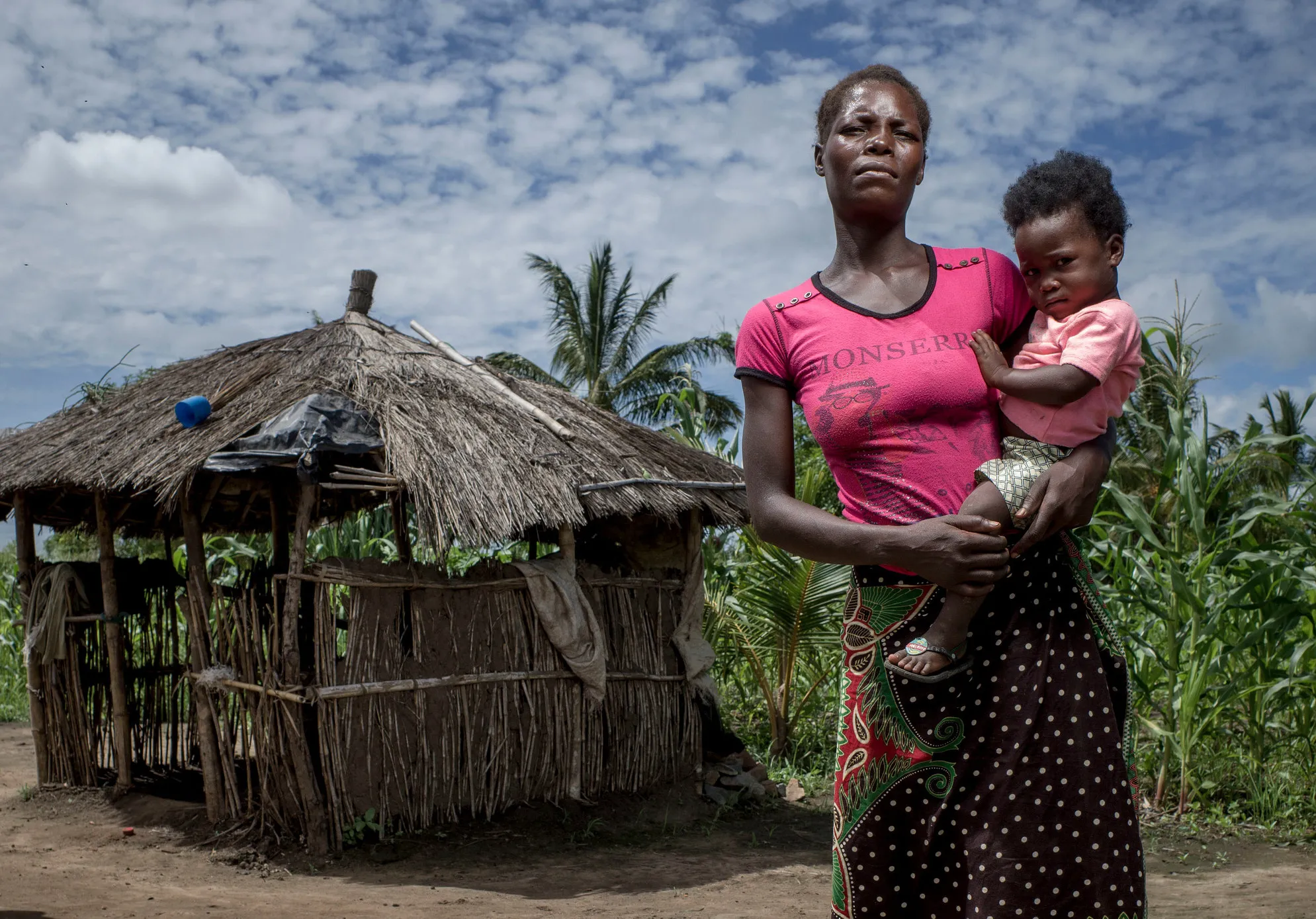BEIRA, Mozambique (March 25, 2019) — CARE staff responding to the devastation left by Cyclone Idai across southern Africa say children and women – particularly pregnant and lactating mothers – are most vulnerable in the storm’s wake. As flood waters begin to subside, CARE’s distribution of aid has focused on those suffering disproportionately, with the latest reports indicating that more than 700 people are now confirmed dead in Mozambique, Zimbabwe and Malawi.
“CARE staff are working around the clock and are making an extra effort to provide relief to those who are hardest to reach,” said Jennifer Bose, a CARE emergency spokesperson on the ground in Beira, Mozambique. “There are many children who have lost parents, several have been injured and everyone is hungry. The most affected are the pregnant and lactating mothers, women and children.”
CARE and its partners have been airlifting aid — including tents, mosquito nets and emergency supply kits — to areas cut off by floodwaters and washed-out roads, while at the same time trucking in relief items to those who can be reached by land.
“Tomorrow, CARE and its partners are delivering 50 family tents, 200 hygiene kits, 200 shelter kits and water tanks in the hard hit Dondo district near Beira,” Bose said. “One of our major concerns at this stage is to stem off the likelihood of a disease outbreak. We are making sure soap and water purification tablets are included in hygiene and sanitary packs.”
In Malawi, CARE has distributed water buckets, chlorine for water treatment and plastic sheets for roofing of temporary shelters to 1,500 households. CARE also is leading the development of protection committees at camps for displaced people, training committee members how to handle issues related sexual harassment and abuse.
“Our main priority is to ensure that women and girls have access to life saving assistance and protection services in all the camps we are working,” says Matthew Pickard, CARE International Regional Manager for Central and Southern Africa. “Almost all the women and girls we have interacted with in the camps lost everything they had, including personal belongings. Some only have the clothes they are putting on and nothing else, which makes them vulnerable to exploitation.”
In Zimbabwe, authorities say 259 people have died, but CARE experts are expecting the numbers to increase significantly in the coming days as search and rescue operations continue.

